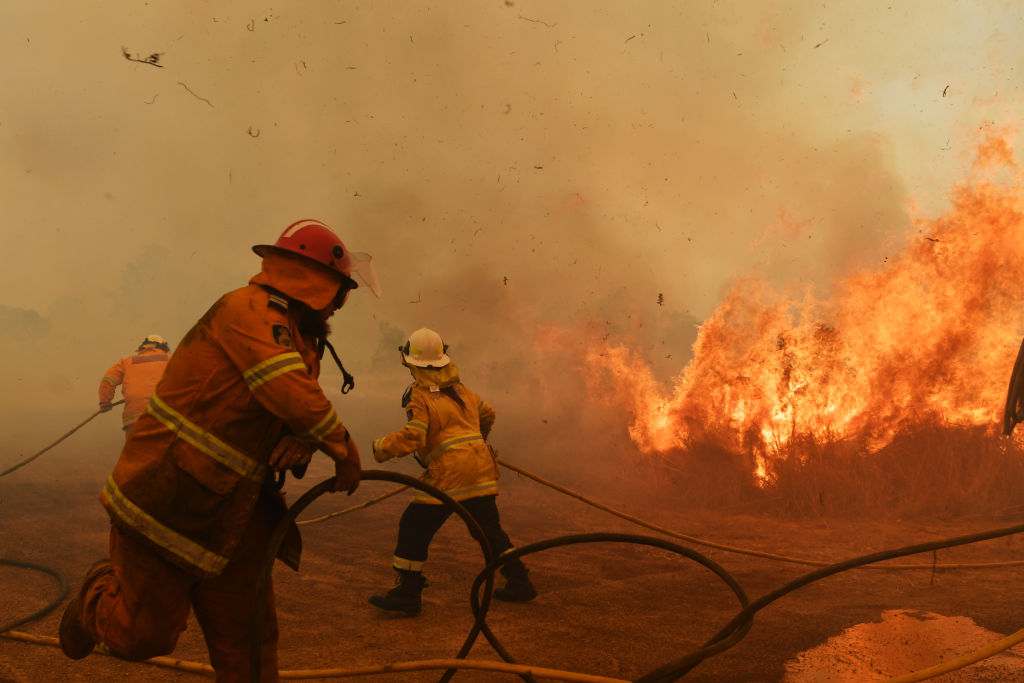 Print This Post
Print This Post- The Strategist - https://www.aspistrategist.org.au -
Australia needs volunteers to be ready for a cyber conflagration
Posted By Katherine Mansted and Finn Robinsen on May 22, 2020 @ 06:00

Article printed from The Strategist: https://www.aspistrategist.org.au
URL to article: https://www.aspistrategist.org.au/australia-needs-volunteers-to-be-ready-for-a-cyber-conflagration/
[1] were warning: https://www.abc.net.au/news/2019-06-27/bushfire-outlook-queensland-2019/11251150
[2] for decades: http://www.internationalaffairs.org.au/australianoutlook/australia-in-a-post-covid-19-world/
[3] scale: https://www.pm.gov.au/media/national-royal-commission-black-summer-bushfires-established
[4] revealed: https://www.zdnet.com/article/australia-has-challenge-of-scaling-defence-capabilities-for-a-large-scale-cyber-attack/
[5] Coordination problems: https://www.aidr.org.au/media/6682/national-resilience-taskforce-profiling-australias-vulnerability.pdf
[6] lack resilience: https://www.aspistrategist.org.au/australia-must-fast-track-new-domestic-storage-to-ensure-fuel-security/
[7] can be brittle: https://7news.com.au/news/fires-across-australia-no-food-no-fuel-no-power-c-629409
[8] social cohesion: https://www.abc.net.au/news/2020-04-03/racism-covid-19-coronavirus-outbreak-commissioner-discrimination/12117738
[9] learning opportunities: https://www.aspi.org.au/report/after-covid-19-australia-and-world-rebuild-volume-1
[10] for years: https://www.unsw.adfa.edu.au/unsw-canberra-cyber/sites/accs/files/publications/Australia%20cyber%20civil%20corps%20Draft%20concept.pdf
[11] shadow cybersecurity minister: https://www.timwatts.net.au/media/186361/national-cyber-resilience-discussion-paper.pdf
[12] this site: https://www.aspistrategist.org.au/time-to-prepare-for-a-cyber-version-of-the-coronavirus-crisis/
[13] other countries: https://carnegieendowment.org/2018/01/18/cyber-mercenaries-state-hackers-and-power-pub-75280
[14] ‘cyber vigilantes’: https://www.csoonline.com/article/3199585/hack-back-law-would-create-cyber-vigilantes.html
[15] roles and responsibilities: https://www.csoonline.com/article/3502930/thank-wannacry-notpetya-for-kicking-australia-s-cybersecurity-industry-into-shape-macgibbon.html
[16] remain unclear: https://www.defenceconnect.com.au/intel-cyber/4991-first-official-australian-cyber-crisis-highlights-growing-threat
[17] responsive to local needs: https://www.newamerica.org/cybersecurity-initiative/reports/need-c3/3-a-us-cyber-civilian-corps-how-would-it-be-organized-and-staffed
[18] decentralised approach: https://www.aph.gov.au/Parliamentary_Business/Committees/Senate/Former_Committees/agric/completed_inquiries/2008-10/bushfires/report/c01
[19] no longer sufficient: https://www.aspi.org.au/opinion/military-must-find-new-balance
[20] defence personnel: https://www.bushfirerecovery.gov.au/news/operation-bushfire-assist
[21] recovery: https://www.pm.gov.au/media/operation-bushfire-assist-concludes
[22] sea of global misinformation: https://www.smh.com.au/business/companies/the-other-viral-problem-in-the-covid-19-pandemic-online-misinformation-20200318-p54bd3.html
[23] cyber literacy: https://www.wired.com/story/opinion-to-bolster-cybersecurity-the-us-should-look-to-estonia/
[24] cyber safety campaigns: https://www.cyber.gov.au/programs/stay-smart-online
[25] regularly contribute: https://knowledge.aidr.org.au/media/5618/aidr-communities-responding-to-disasters-planning-for-spontaneous-volunteers-handbook.pdf